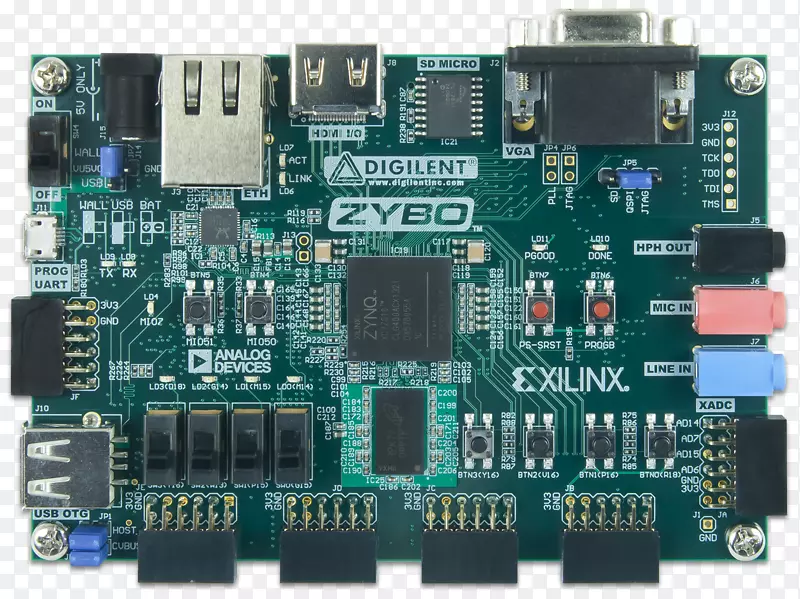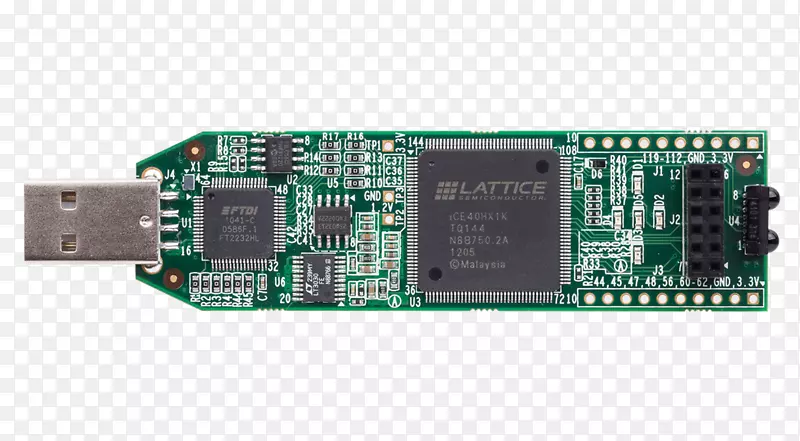Field Programmable Gate Arrays (FPGAs): A Versatile Solution for Custom Hardware Designs
Field Programmable Gate Arrays (FPGAs) are a unique type of semiconductor device that can be reprogrammed after manufacturing, allowing engineers to implement complex digital logic designs tailored to specific applications. MobikeChip provides a comprehensive selection of FPGAs from leading manufacturers, enabling our customers to access high-performance, customizable solutions for various applications across industries such as telecommunications, automotive, industrial automation, and more. In this blog, we’ll delve into the fundamentals of FPGAs, their advantages, applications, and why MobikeChip is the preferred source for FPGA solutions.

What Are Field Programmable Gate Arrays (FPGAs)?
Field Programmable Gate Arrays (FPGAs) are integrated circuits that can be configured by the customer or designer after manufacturing to perform a wide range of logical functions. Unlike application-specific integrated circuits (ASICs), which are designed for a single, fixed purpose, FPGAs offer flexibility in their design, making them a versatile choice for engineers who need adaptable, custom hardware solutions. FPGAs consist of an array of programmable logic blocks, memory elements, and interconnects, which can be configured to execute complex tasks or specific functionality as needed.
FPGAs can support parallel processing, meaning they are capable of handling multiple tasks simultaneously. This feature, along with their reconfigurability, makes FPGAs particularly useful in applications where requirements may change over time or where complex real-time processing is needed.
Key Characteristics of FPGAs:
- Reconfigurability: FPGAs can be reprogrammed as needed, making them adaptable for different applications or changing requirements.
- Parallel Processing: The architecture of FPGAs allows for simultaneous processing of multiple tasks, ideal for high-performance applications.
- High Throughput and Speed: With FPGAs, high-speed data processing is achievable, making them suitable for time-sensitive applications.
- Low Latency: FPGAs provide low-latency processing, a benefit for applications where rapid response times are essential.
Applications of FPGAs Across Industries
FPGAs offer unmatched flexibility, which allows them to be used in various applications across industries that demand high performance and customizability. Here are some of the major use cases for FPGAs:
1. Telecommunications and Networking
In telecommunications, FPGAs are widely used for implementing high-speed data processing functions and managing complex network protocols. Their reprogrammable nature allows engineers to update or modify FPGA configurations as networking standards evolve, providing a cost-effective solution for keeping pace with the latest technologies.
- Signal Processing: FPGAs are used in wireless base stations and fiber optics systems for digital signal processing (DSP), a critical function in data transmission.
- Packet Processing: FPGAs can perform packet filtering, switching, and routing functions in networking equipment, providing flexibility for custom protocols and security features.
- Data Compression and Encryption: In network security, FPGAs are used to implement data encryption, decryption, and compression algorithms to secure communications.
2. Automotive and Advanced Driver-Assistance Systems (ADAS)
In the automotive sector, FPGAs support a range of applications, including advanced driver-assistance systems (ADAS), infotainment systems, and engine control units. Their ability to process multiple data streams in parallel makes FPGAs suitable for real-time processing in safety-critical applications.
- ADAS and Autonomous Driving: FPGAs process data from cameras, radar, and other sensors in real-time, enabling features like lane detection, collision avoidance, and object recognition.
- Infotainment Systems: FPGAs can handle video and audio processing tasks in in-car entertainment systems, delivering high-quality multimedia experiences for drivers and passengers.
- Engine and Powertrain Control: In engine control units, FPGAs provide the flexibility to update control algorithms, ensuring optimal engine performance and fuel efficiency.
3. Industrial Automation and Control
In industrial automation, FPGAs provide high-performance computing for tasks like motion control, robotics, and real-time monitoring. Their adaptability allows them to integrate with various sensor types and industrial protocols, making them ideal for environments where tasks and requirements change frequently.
- Motion Control Systems: FPGAs are used in robotics and automated machinery for precise control of motors and actuators, ensuring smooth and accurate movements.
- Real-Time Data Monitoring: FPGAs enable real-time processing and monitoring of data from industrial sensors, improving the responsiveness and efficiency of control systems.
- Custom Protocol Implementation: FPGAs allow manufacturers to implement proprietary communication protocols, ensuring seamless integration with existing systems and equipment.
Benefits of Using FPGAs in Design
FPGAs offer distinct advantages over other hardware solutions, making them a powerful choice for engineers looking to create flexible, high-performance systems. Here are some of the key benefits of using FPGAs:

1. Flexibility and Reconfigurability
One of the primary advantages of FPGAs is their reconfigurability. Engineers can reprogram the FPGA at any time to update or modify its functions, making FPGAs ideal for projects with evolving requirements or where field upgrades may be necessary. Unlike ASICs, which have a fixed function once manufactured, FPGAs can be adapted to new applications, extending their useful life and reducing the need for hardware redesign.
2. Enhanced Parallel Processing
FPGAs enable parallel processing, allowing them to handle multiple tasks concurrently. This capability makes FPGAs highly efficient in applications requiring large amounts of data to be processed quickly, such as signal processing and image analysis. The parallel architecture of FPGAs allows them to achieve a level of performance that is difficult to match with general-purpose processors, making them indispensable in applications with high throughput demands.
3. Low Latency for Real-Time Applications
In real-time applications, low latency is critical for ensuring that the system responds to inputs without delay. FPGAs provide this low-latency performance by enabling direct connections between logic elements without the need for intermediate processing stages. This feature is especially beneficial in applications like ADAS, where fast response times are essential for safety. By using FPGAs, engineers can create systems that perform reliably in real-time environments.
Why Choose MobikeChip for Your FPGA Needs?
At MobikeChip, we are dedicated to providing high-quality FPGAs that support the diverse needs of our customers. Whether you’re designing for telecommunications, automotive, industrial automation, or consumer electronics, MobikeChip offers a wide selection of FPGAs from trusted manufacturers, ensuring that you have access to cutting-edge technology and support to bring your vision to life.
1. Wide Range of FPGAs from Leading Brands
MobikeChip’s FPGA portfolio includes options from top industry manufacturers, allowing you to find the exact specifications and features needed for your project. Our FPGAs come with varying logic densities, power ratings, and I/O options, ensuring that you can find the best fit for any application. We cater to customers who need solutions for everything from simple control tasks to advanced, high-performance computing applications.

2. Expert Support and Guidance
Our team at MobikeChip has extensive experience in FPGA technology, and we are here to help you select the best FPGA for your requirements. Whether you need assistance with component selection, design optimization, or troubleshooting, our experts are ready to provide the support you need to achieve your design goals. With MobikeChip, you’ll benefit from a partner who is as invested in your success as you are.
3. Efficient and Reliable Supply Chain
With over 15 years of experience in the electronics industry, MobikeChip has built a reliable and efficient supply chain. Our close relationships with FPGA manufacturers allow us to provide quality products and timely delivery, helping you keep your projects on schedule. When you choose MobikeChip, you can trust that you’re partnering with a provider who prioritizes your business needs.
Conclusion
Field Programmable Gate Arrays (FPGAs) represent a powerful, flexible solution for applications that require high-performance, customizable hardware. Their reconfigurability, parallel processing capabilities, and low latency make FPGAs an ideal choice for industries ranging from telecommunications to automotive and industrial automation. At MobikeChip, we are committed to delivering top-tier FPGA solutions and exceptional support to help you achieve your design objectives.
If you’re ready to unlock the potential of FPGAs for your next project, explore MobikeChip’s range of FPGA solutions today. With our extensive selection and expertise, MobikeChip is your trusted partner for innovative, high-performance design.
MobikeChip offers a broad range of genuine electronic components from over 2,600 manufacturers at competitive prices. Our product portfolio includes Integrated Circuits (ICs), Discrete Semiconductor Products, Resistors, Capacitors, Relays, Switches, Transformers, Sensors, Transducers, Inductors, Coils, Chokes, Potentiometers, Variable Resistors, Crystals, Oscillators, Resonators, Connectors, Interconnects, Memory Cards, Modules, Fans, Thermal Management products, and more.
Reprinted from: https://www.mobikechip.com/static-blog-detail/115.html
Comments
Post a Comment